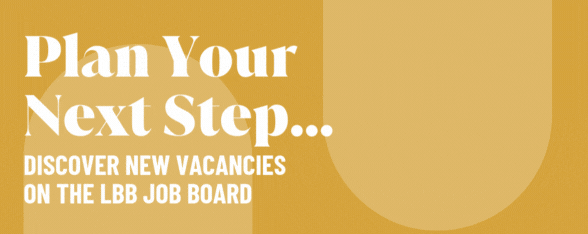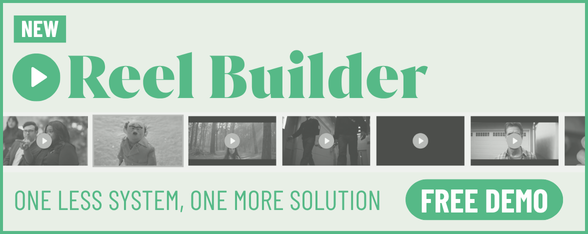
Meet Your Makers: Why There Isn’t a Right Way of Doing Something with Natasha Sattler

Natasha Sattler is head of production at Ethos. Natasha set her sights on a career in filmmaking early on. While attending the University of Central Florida for Film, she discovered her love for producing, in addition to her long-standing passion for writing. After moving to Los Angeles, she landed a job as a post production coordinator early on, working on the Disney film ‘Oz The Great and Powerful’. Upon completion of that film, she moved into post-coordinating for commercials and later went on to spend nearly half a decade working for the international award-winning production company, Smuggler, as a post production supervisor. While there, she worked on over 300 commercial campaigns, including Cannes Lions, Emmy, AICP, and D&AD winners, and many other awards. Natasha has also worked for Jump as a Post Producer on broadcast commercial campaigns and digital projects, and at Company 3 in both their film trailer and commercial divisions.
LBB> What first attracted you to production - and has it been an industry you've always worked on or did you come to it from another area?
Natasha> If you ask my parents, they would say there was no way I wasn't working in this industry. I told them I wanted to work in TV from the moment I knew that was possible.
I have a very energetic personality, and the industry's fast-paced environment is what drew me in. Couple that with the fact that I love working on things that make a difference in people's lives, and there was no other option for me.
LBB> What was your first role in the production world and how did this experience influence how you think about production and how you grew your career?
Natasha> Technically my first role on the production side was interning at a few companies during college, which was eye-opening in a way I couldn't have imagined. I interned at two companies simultaneously - both of which were TV-based - and watched producers with essentially the same workload handle their approach very differently. It clicked for me that there was more than one way to do something.
LBB> How did you learn to be a producer?
Natasha> I watched really amazing producers kick ass at their jobs and it inspired me to be like them. Seeing up close how integral a producer is to the whole process, more than anyone realises from the outside, made me want to learn everything I could to be amazing at that role. Producers shape the entire project with such depth in a way I never knew until I began working as a producer.
LBB> Looking back to the beginning of your career, can you tell us about a production you were involved in where you really had to dig deep and that really helped you to grow as a producer?
Natasha> It's tough to admit, but it's always the hard, soul-crushing projects that help you grow. I only learn a little from projects that go well or are smooth from start to finish. The growth always stems from the problems and, with them, the hard lessons learned.
I've also learned over time not to judge a book by its cover. I've worked on low-budget projects with big aspirations that I think will be really intense and hard to manage but end up being a breeze. Then I've had projects that seem super straightforward that go sideways from the start and end up causing the biggest headaches.
LBB> A good producer should be able to produce for any medium, from film to events to digital experience. Do you agree or disagree with this statement? Why/why not?
Natasha> I don't. Can we produce for all mediums? Absolutely. Should we produce for all mediums? Definitely not. It's true with any profession - there isn't a copy & paste button on workflow. If you want a great producer, you need someone with experience. If someone is in a new medium, they don't have that needed experience.
LBB> What's your favourite thing about production and why?
Natasha> I love seeing the final product. It's always fun to stumble upon it - if I'm in a restaurant and see something airing in the background or scrolling on social media and see something pop up - and I enjoy knowing that what I've worked on is out in the world.
LBB> How has production changed since you started your career?
Natasha> The impact of social media has changed everything. Everything has shifted - from how we get leads to the deliverables list. It's so funny when I hear people say they don't watch commercials anymore because we are exposed to more advertisements now than ever before. We are viewing more content than ever before. You may not sit down and watch one hour-long procedural drama with four commercial breaks, but you're definitely viewing more commercials than you ever have in your life.
LBB> And what has stayed the same?
Natasha> My dedication to the work. At times I find myself feeling jaded, drifting from the reason I got into this business in the first place. I have to remember the gratitude I feel knowing I'm doing something my childhood self dreamed about. It's been over a decade and I still feel joy for that little girl who accomplished her dream.
LBB> What do you think is the key to being an effective producer - and is it something that's innate or something that can be learned?
Natasha> I'm a big believer in organisation and transparency. Speaking as a head of production, I always find it easier when everyone is aware of all pieces of the puzzle. It requires an intense level of organisation, and if that's not within you, it's tough to learn.
LBB> Which production project from across your career are you most proud of and why?
Natasha> Anytime I get to work with a charitable organisation, that tops my list. My passion for helping others and reaching people through my role in production, especially with Ethos, ignites my soul in a special way. I've done projects for Sandy Hook Promise, UNICEF, Charity Water, etc. Anytime I see my work make a genuine impact in the world, it washes away any insecurities or memories of the harder projects because I know what I do is worth it.
LBB> And in terms of recent work, which projects have you found to be particularly exciting or have presented particularly interesting production challenges?
Natasha> I hate to start with the challenges, but it's the first thing that comes to mind. The pandemic has blurred work and home life and amplified expectations to work round the clock. I think we've lost sight of the work-life balance. That's a big reason why I gravitated towards Ethos: we value every single member of our team for what they bring to the table work-wise and respect the lives they have outside of the office as well.
As for the projects that excite me, I feel grateful anytime I get to work on something new, innovative, and creative.
LBB> Producers always have the best stories. What's the hairiest / most insane situation you've found yourself in and how did you work your way out of it?
Natasha> I try not to speak publicly about specific jobs, especially ones with insane situations as I find it’s not helpful to point fingers. All I will say is I'm so proud of female creatives and producers who are working their way up in the industry. It's such an amazing time for female filmmakers, and I'm so excited to see work that reflects their voices. I think it's changing the industry in such a healthy and necessary way.
LBB> What are your personal ambitions or aspirations as a producer?
Natasha> My work is constantly evolving and it's hard to pinpoint one aspiration. The world is changing so quickly it requires adaptability to new workflows to keep up with an ever-changing landscape.
LBB> As a producer your brain must have a never-ending "to do" list. How do you switch off? What do you do to relax?
Natasha> Oh man, I feel like I speak for many millennials when I say I don't know the last time I truly relaxed. I love to travel and that physical disconnect allows me to leave things at home, but in my day-to-day life, a problem will stick with me until it's solved.
The never-ending to-do list is real. I have a bad habit of purchasing Post-it Note packs weekly and making nightly to-do lists for the next day. Finding the organisation technique that works best for you is crucial to being a producer. I don't know any disorganised producers who are successful.
I stay organised by categorising emails by job (or bidding, billing, tech stuff, etc) and breaking my day into smaller increments.
LBB> Producers are problem solvers. What personally fuels your curiosity and drive?
Natasha> Every producer is drawn to this field to solve problems. I love a good puzzle. It's like cracking a code each time when you figure out the solution.
What fuels me is creating content that is meaningful and entertaining. At Ethos, we strive to make powerful, creative content, and that's what drives me.
LBB> What advice would you give to people who are interested in becoming a producer?
Natasha> Observe as much as you can. People have different styles and ways of working - take what works best from each experience and mould your own producing style. Watch how producers handle problems on a job and tackle the solution. It's such a big part of the job, but there's no guidebook on how to handle sticky situations.
Also, stay in touch with the people whose opinions you value. I have several mentors I still lean on and learn from constantly. This job can get overwhelming, but knowing you have people in your corner who have been there before is so valuable.
It's hard to map out a blueprint because each job is different, but it's always good to maintain the relationships you make along the way.
LBB> From your experience what are the ingredients for a successful production?
Natasha> Collaborative people are the most essential ingredient. I love working with people who are experienced and open to collaboration.
LBB> What's the key to a successful production-client relationship?
Natasha> Being on the same team. Things can go sideways - that's just part of the job - but trusting each other to work collaboratively as a team is a key component.
LBB> Producers are naturally hands on - they have to be. How do you balance that in the more managerial role of an EP?
Natasha> It's been challenging for me to step back and let someone be more hands-on with projects. I plan out the whole job during the bidding process and then hand it over to a producer, which can be hard when you feel closely attached or want to stay involved with the team.
It's taken some time for me to get more comfortable with the idea that everyone has their own way of doing things. There isn't necessarily a right way of doing something, which is a lesson I continue to learn.
















